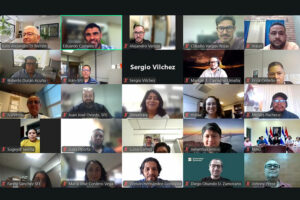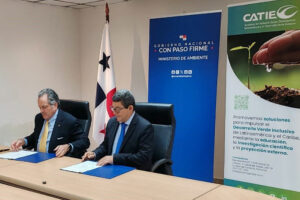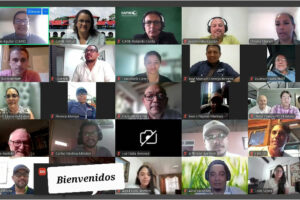CATIE Banana Congress becomes a key reference for the sector in Latin America and the Caribbean
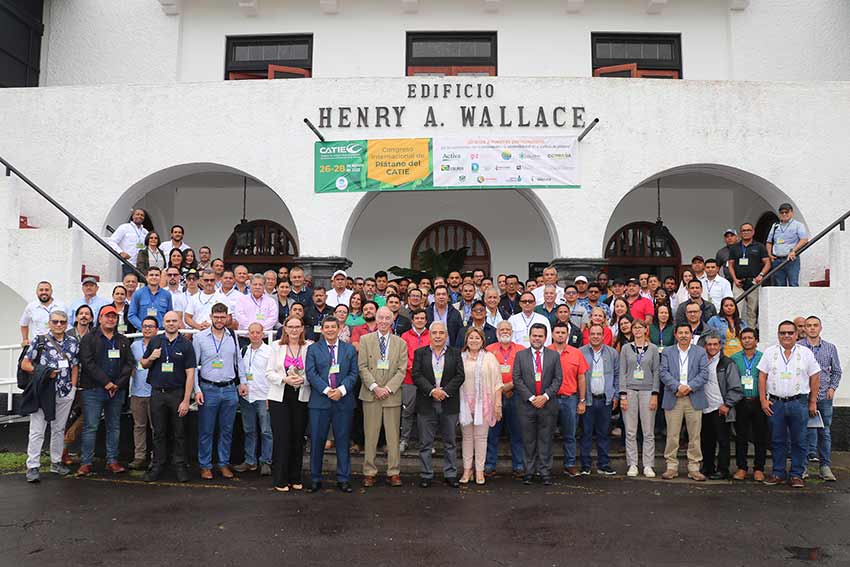
- The event marked the official delivery of the certificate accrediting that bananas produced at CATIE are pesticide-free; a recognition that reaffirms the institution’s leadership in promoting healthy and environmentally responsible agri-food systems.
With the participation of approximately 200 people from 15 countries, the International Banana Congress of CATIE (Tropical Agricultural Research and Higher Education Center) is successfully taking place in Turrialba, Costa Rica, consolidating itself as a key meeting point for sustainability, innovation, and competitiveness in the banana sector across the region.
The opening ceremony was attended by national and international authorities, representatives of cooperation agencies and the private sector, as well as researchers and producers linked to the Musaceae family.
The main table featured Roberto Camacho, Director General of the National Institute for Innovation and Technology Transfer in Agriculture (INTA); Lorena Carballo, from Kiwa BCS Costa Rica Limitada; Laura Benegas, Director of CATIE’s Division of Research for Inclusive Green Development; and Dr. Luis Pocasangre, CATIE’s Director General, who gave the official welcome to this historic space for knowledge exchange.
“It is a special day because we are commemorating a banana celebration, one that has gathered representatives from all of Latin America and the Caribbean. I am very grateful to the government of Costa Rica and PROCOMER for supporting this initiative. We are going to address agronomic challenges, agroindustry, and commercialization. So we welcome you, and these will be three days of analysis,” said Dr. Pocasangre.
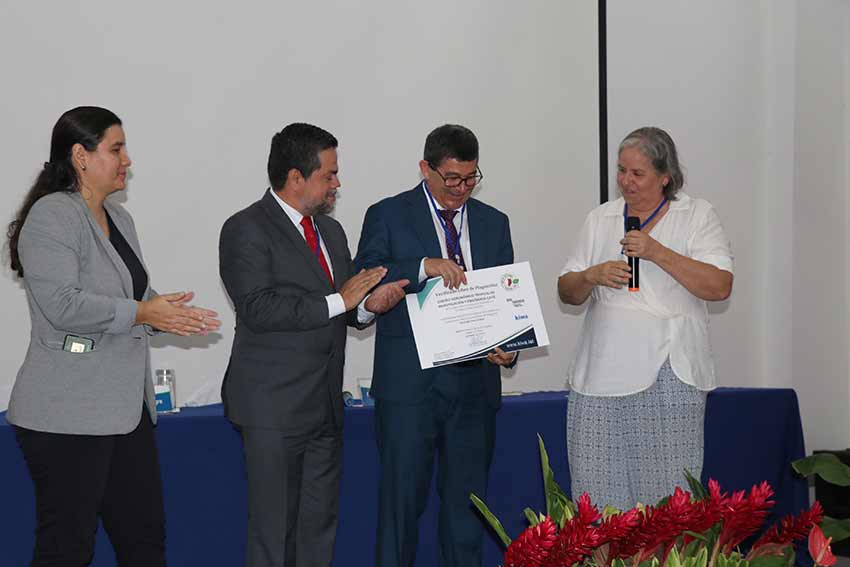
During the opening, the congress also announced its commitment to sustainability, seeking the Blue Flag Ecological Award in the special events category, a recognition that reinforces CATIE’s leadership in organizing environmentally responsible gatherings. In addition, the Director General presented awards to outstanding experts who have made valuable contributions to Musaceae research and development, including Dr. Franklin Rosales and Dr. Rony Swennen.
Throughout the three days of the congress, producers, researchers, companies, cooperation agencies, and government representatives will share knowledge, build alliances, and design strategies to strengthen the banana system through genetics, production, processing, and public policies.
Day 1: Sustainability and international certification
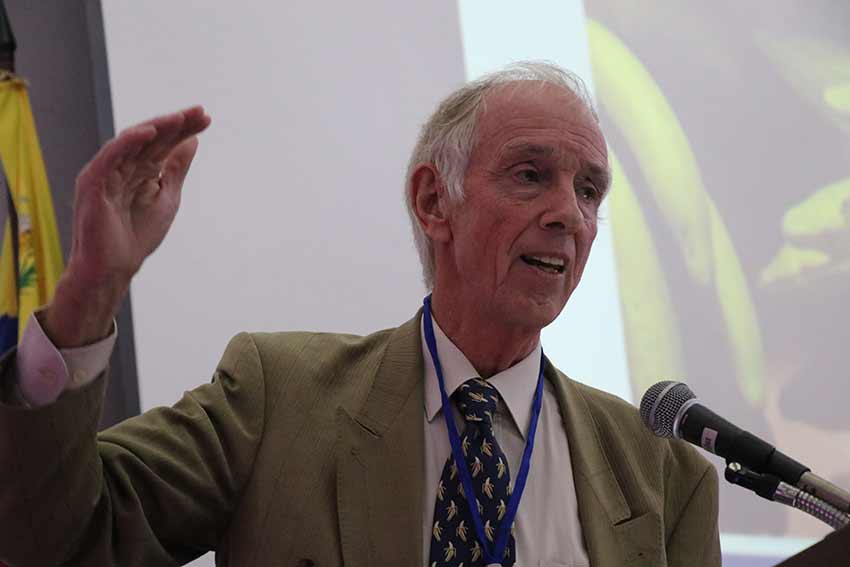
The inaugural day, focused on banana genetics and production, featured high-level presentations such as those by Dr. Rony Swennen (KUL, Belgium / IITA, Uganda) and Dr. Franklin Rosales (Bioversity International, Honduras), among other leading experts.
A milestone of the day was the presentation by Lorena Carballo of Kiwa BCS Costa Rica Limitada, a certification body dedicated to agricultural inspection and certification at national and international levels. She officially delivered the certificate accrediting that bananas produced at CATIE are pesticide-free. This recognition reaffirms CATIE’s leadership in promoting healthy and environmentally responsible agri-food systems.
“We have delivered the certificate indicating that CATIE has complied with the pesticide residue-free regulation. Under this standard, the certified product reaches consumers with 0% pesticide residues. An analysis and an on-site audit were carried out, verifying good agricultural practices, good manufacturing practices, and especially the non-use of agrochemicals for pests and diseases,” said Carballo.
In addition, international consultant Jorge Mario Pérez from ENLASA Guatemala presented experiences, while Diego Molina from Ecuador showcased banana transformation models. Gustavo Gandini from the Dominican Republic also participated, speaking extensively about the importance of this food in his country as an economic driver and cultural symbol.
Day 2: Agroindustry and culinary innovation
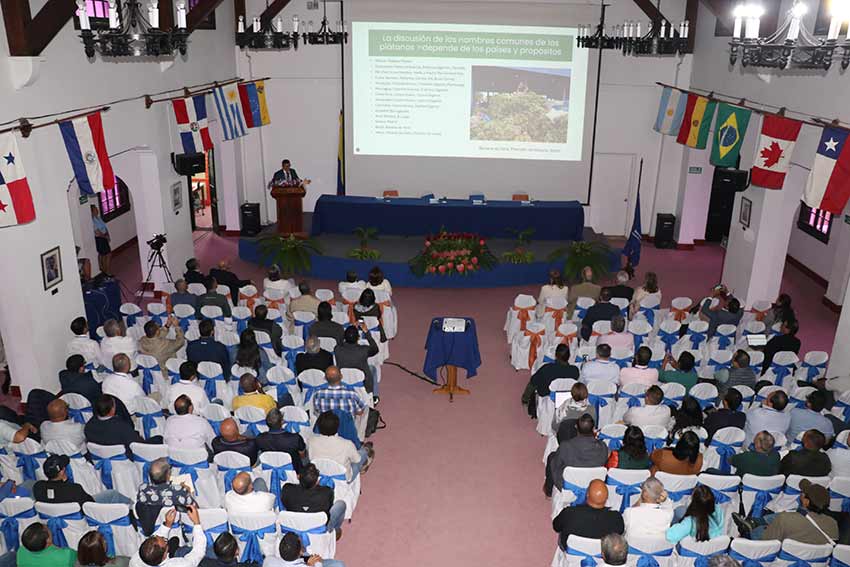
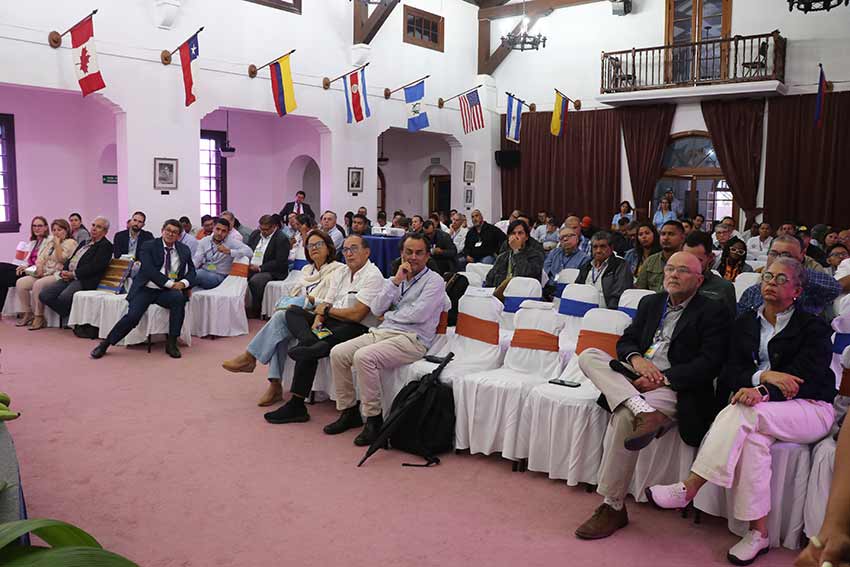
The second day of the congress was dedicated to agroindustry and commercialization, highlighting how added value and innovation are key to the future of banana cultivation.
María Angélica Castillo and Carlos Gamboa from CORBANA presented strategies to confront the threat of Fusarium R4T, while international consultant Wilfredo Flores from Costa Rica shared an overview of the current state of the banana agroindustry in Latin America and the Caribbean, highlighting trends and opportunities.
The activity also featured CORBANA’s Executive President, Danilo Román, who underscored the importance of the event and its regional impact. “Bananas are one of the most important sources of nutrition and, at the same time, represent a fundamental industry not only because of the number of producers but also because of the large number of people who benefit along the value chain. That is why I congratulate CATIE for this initiative and everyone who came to contribute to the cause. I am sure this will not be the only time we meet,” he said.
The day also included participation from Cecilia Borbón of Grupo ALZU, who emphasized the importance of fruit quality for industrial processing. The day concluded with a producers’ panel, moderated by Flores, in which the main challenges and opportunities of commercialization for the industry were discussed.
Day 3: Public policies, trade, and the future of the sector
The third day of the congress focused on policies, incentives, and financing—fundamental aspects for consolidating the growth of the sector.
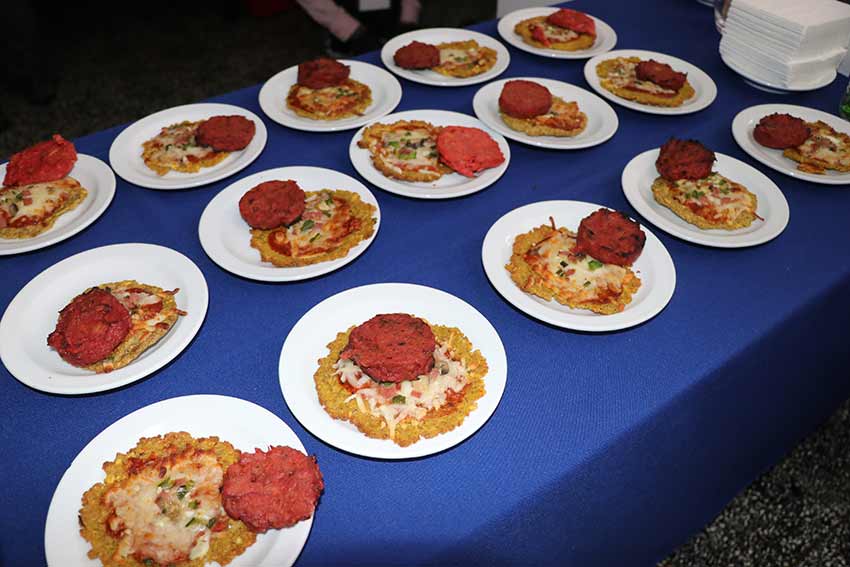
Camacho from INTA highlighted the importance of bananas for the country, while PROCOMER representatives Juan Ramírez and Ariana Quirós shared the national promotion strategy for banana production.
CATIE students also presented results from a study on bunch growth and profiling in three commercial cultivars at the Center.
Additionally, Vladimir Valera from ACTIVA-CATIE, together with GIZ, highlighted the need to strengthen financing mechanisms for small and medium-sized producers.
One of the most anticipated moments of the congress was the recognition of 44 banana-related ventures within the TRANSFORMA INNOVA program in Costa Rica.
These ventures, supported by CATIE’s ACTIVA innovation and entrepreneurship lab, will receive seed capital for business development, along with training, specialized mentoring, and networking opportunities.
The program seeks to strengthen entrepreneurs’ livelihoods, promoting climate resilience, greenhouse gas mitigation, stronger banana value chains, and biodiversity conservation.
This recognition is possible thanks to co-financing from the European Union, the German Ministries BMWK and BMUV through their Climate Initiative, and the Costa Rican Development Banking System (SBD), with implementation by GIZ and leadership by CATIE.
More information:
International Banana Congress
congresoplatano@catie.ac.cr
Written by:
Esteban Rodríguez Zamora
Communicator
Information Technology and Communication
CATIE
esteban.rodriguez@catie.ac.cr

